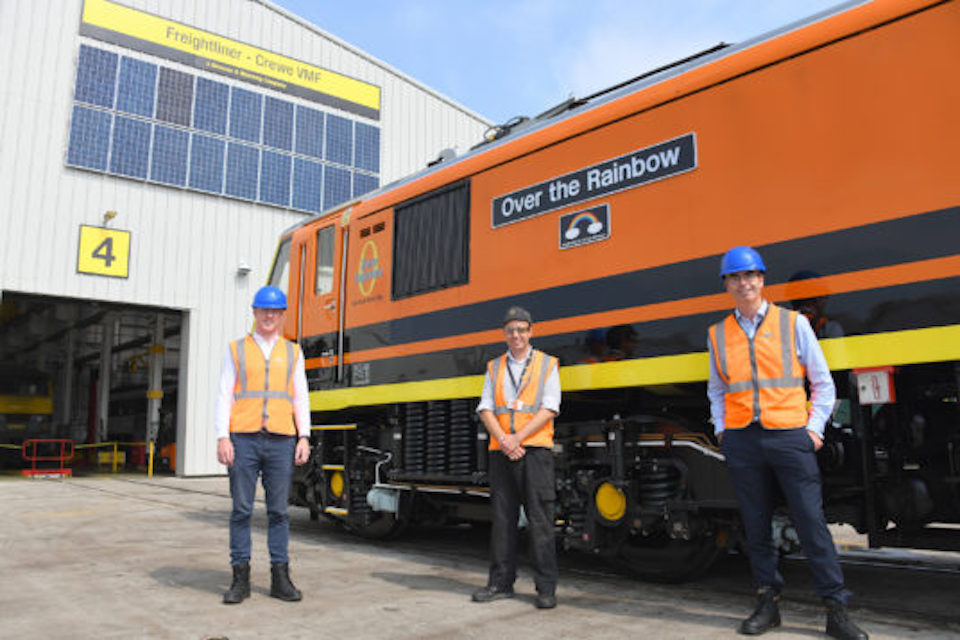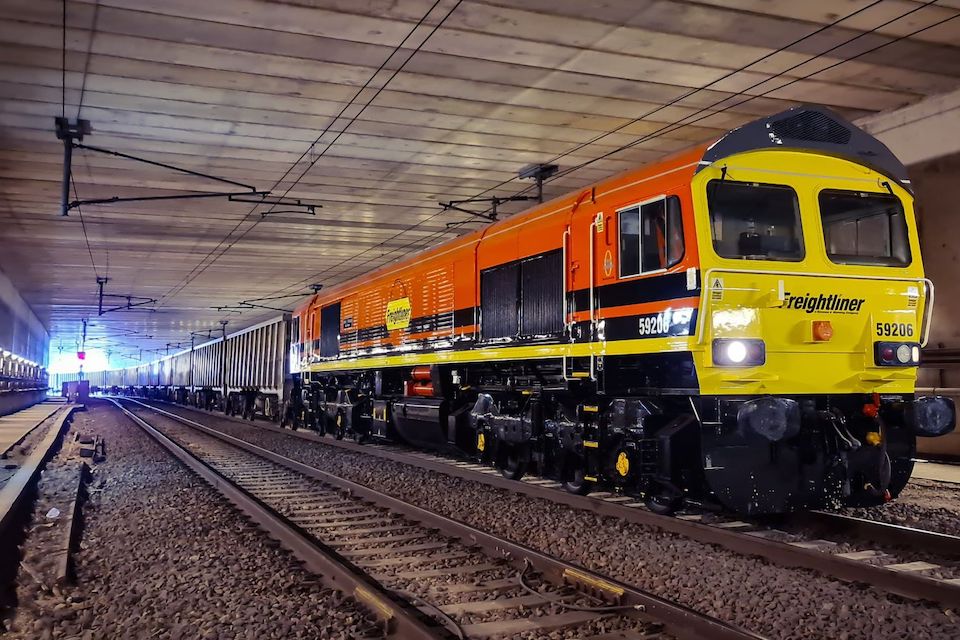Freightliner UK implements time-saving Terminal Operating System

The implementation of their integrated Terminal Operating System (TOS) at the gates of Cardiff and Birmingham helped Freightliner regain the “Rail Freight Operator of the Year” title at the recent Multimodal trade show in Birmingham. It was the fourth win in six years for the operator.
Freightliner UK, part of the worldwide Genesee and Wyoming freight group, has been working with Rotterdam based Tideworks Technology to implement a suite of computerised solutions, initially at two UK locations. They have already demonstrated time savings at Cardiff and Birmingham for both rail and road operators. At Birmingham queues of up to two hours at the gates have been reduced to just twenty minutes, releasing terminal capacity and, perhaps of even more topical importance, releasing road truck drivers far more quickly.
Rail freight faith in events industry
Multimodal is considered a bell-weather part of the UK events scene, and its return has being signalled as confidence in the industry. For rail freight operators, it has become established as one of the touch points of the corporate year. Not surprisingly, Freightliner’s win at the associated awards was well received by the company. UK Rail Managing Director Tim Shakerley accepted the award on behalf of Freightliner, along with top executives from the corporation.

“I am delighted that Freightliner has been recognised again in this category, particularly as the winner is decided by customer votes,” said Eddie Aston, CEO for Genesee and Wyoming’s UK and Europe Region companies. “Freightliner has responded with flexibility, agility and ingenuity to the unprecedented challenges of the Covid-19 pandemic as well as the current supply chain stresses, and we continue to listen to and work with customers to design and deliver innovative, cost effective solutions in response to their needs.”
Technological advances and expansion at London
In addition to the Terminal Operating System (TOS) with automated gates and associated computerisation, Freightliner was able to cite significant developments in locomotive and rolling stock maintenance; including a new fuelling facility in Ipswich, helping serve east coast ports, and saving thousands of miles transferring locomotives and wagons for maintenance and repair.

Those improvements come alongside the deployment of a brand new design of FFA-G intermodal wagon which, says the company, are eco-friendly and more than two tonnes lighter per platform than its nearest competitor, driving significantly less weight per train whilst maintaining industry safety standards. The new rolling stock has already been deployed at their Pentalver-branded terminal at London Gateway, where site improvements will increase maintenance, repair and reefer operations, and take the overall site capacity to 7,400 TEU, enabling additional storage, and helping unwind the global supply chain issue and container pile-up.
Supporting customers environmental targets
Investing in the latest technically advanced lifting and handling machines at their UK terminals, providing a swift and flawless operation for customers. Investing 1.2 million pounds (1.4 million euro) in their Manchester Trafford Park terminal to assist customers with increased container storage as a result of market changes.
“Rail is the most carbon efficient way of transporting freight around Great Britain, and Freightliner is continuing to work with customers to reduce emissions further,” added Aston, who is keen to stress Freightliner’s environmental ambitions. With a nod to the COP26 conference in Glasgow next week, Aston made closing reference to the company’s green credentials. “Operations are focused on enhancing the environmental benefits of rail-freight transportation”, he said. “Rail freight will play a significant role in supporting the UK’s journey to net zero 2050, and our customers expect us to support their environmental targets. “Freightliner is working hard with its customers to run longer and heavier trains. Longer trains not only improve the efficiency and productivity of services, but also reduce emissions per tonne of freight transported.”
You just read one of our premium articles free of charge
Want full access? Take advantage of our exclusive offer




